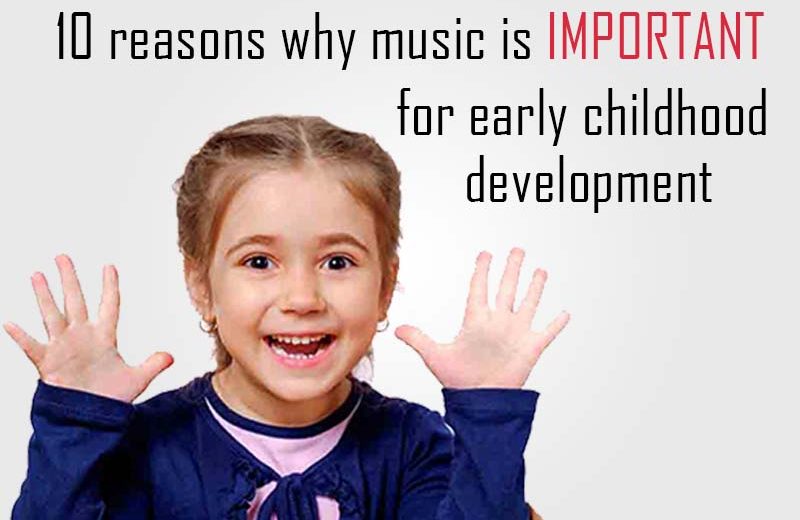
10 Reasons why Music is Important for Early Childhood Development
10 Reasons why music is important for Early Childhood Development
In this article, you will learn about 10 reasons why music is important for early childhood development. Your child possibly already loves music and has favourite songs, like most pre-schoolers. This may have happened with little encouragement from you beyond simply playing music on long car trips.
It is in the first three years of life that a child is forming the brain connections that will lay the foundation for the speech/language, motor, and cognitive skills they will use for years to come. Musical experiences are an important way to help young children create these pathways, also called neural connections.
Not only is music a success oriented and engaging means of addressing these skill areas, music drives neuroplasticity by pairing non-musical skills with music. This engages multiple systems of the brain in synchrony and fosters communication between both hemispheres.
And while listening to music is certainly key to creating them, it’s when kids actively participate in music that they make the strongest connections. A study found that musical experiences in childhood can actually accelerate brain development, particularly in the areas of language acquisition and reading skills, learning to play an instrument can improve mathematical learning and even increase SAT scores.
Here’s 10 reasons why music is important for early childhood development:
1. Music expands communication & imagination
Even before babies are able to talk, their babbling and sound-play helps them to develop neural pathways necessary for listening and speaking. Did you know infants who hear language directed and responsive to them tend to babble more and have larger vocabularies as toddlers? Children can easily and quickly mimic music and sounds they hear as an additional way to understand and make sense of the world around them.
2. It boosts IQ
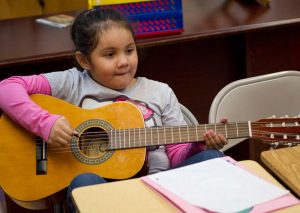
Music can boost one’s overall IQ. Studies have shown that learning to play an instrument can have a lasting effect. When a study was conducted, children who took piano lessons for one year, coupled with consistent practice, saw an IQ bump as high as three points.
3. It cultivates patience in kids
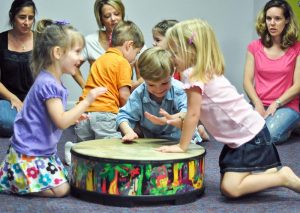
Patience and Perseverance In order to learn a musical instrument, children must develop patience and perseverance, which will help them later in life when they must tackle other more difficult challenges.
4. Music Increases Child’s Sensory Development
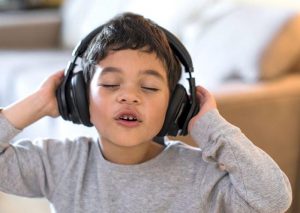
Just as taste, textures and colours aid a child’s sensory development, so does music. Exposing your child to different types of music can help create more pathways between the cells in their brains. This effect increases even more when you link music to different activities such as dancing.
5. It Makes them Happy!
Live music is exciting for us adults, but it’s even more exciting for little ones! Live music is known for creating delight and excitement in those experiencing it, lifting our mood and protecting us from sadness and even illness. Cooking familiar foods, celebrating holidays, and performing beloved music and dances are ways for children to discover the possibilities of laughing and joking, and to experience positive emotions like delight, joy, and affection.
6. It improves their literacy

Music can improve literacy. The way we process musical sound is the same way we process speech. Because of this, children who take music lessons can improve their listening skills and, in turn, improve the way they process language.
7. Emotional Development

Children who enjoy and study music can be more emotionally developed, with empathy towards other cultures They also tend to have higher self-esteem and are better at coping with anxiety. The act of learning and playing an instrument, the encouragement of a teacher and the enthusiasm of a proud parent, will build in a child a sense of pride and confidence. Moreover, children who practice self-expression and creativity often become better communicators later in life.
8.Improves Coordination
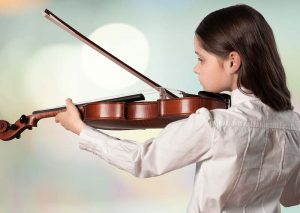
Playing an instrument requires the brain to work at advanced speeds. Reading music is converted in the brain to the physical motion of playing the instrument. Children who play instruments have improved hand eye coordination over those who do not.
9. Improves Listening Skills
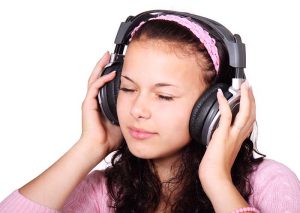
Playing an instrument requires children listen carefully to an array of different things. They not only need to listen to instructions from their teacher or music therapist, they need to listen for rhythm, pitch and speed. This concentration will improve their skills in music and in life.
10. It’s a Mood lifter

Music is a mood lifter. A lot of parents tuck their children in with a lullaby or calm them down with a song. Just as music can soothe a child, it can also lift their spirit. More and more, music therapy is being used to complement more traditional forms of medicine. Researchers acknowledge that certain types of music can aid relaxation by lowering heart rates and blood pressure.



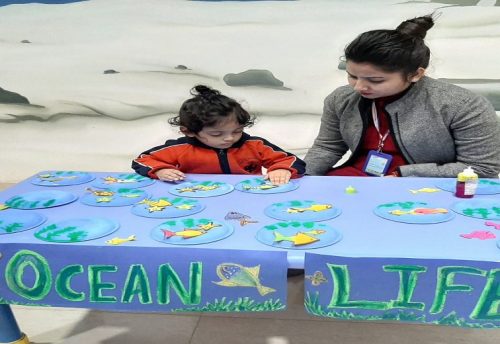

9 Comments